Pablo Escobar’s life serves as a chilling reminder of the dark side of ambition and power. As the mastermind behind a cocaine empire that claimed around 8,500 innocent lives, he transformed Colombia into a battleground of violence and fear. His duality—philanthropist to some, ruthless killer to many—complicates the narrative of his legacy. While his social investments momentarily endeared him to certain communities, the broader impact of his reign of terror continues to ripple through history. What drives individuals to such extremes, and how does society grapple with the aftermath of their actions?
Key Points
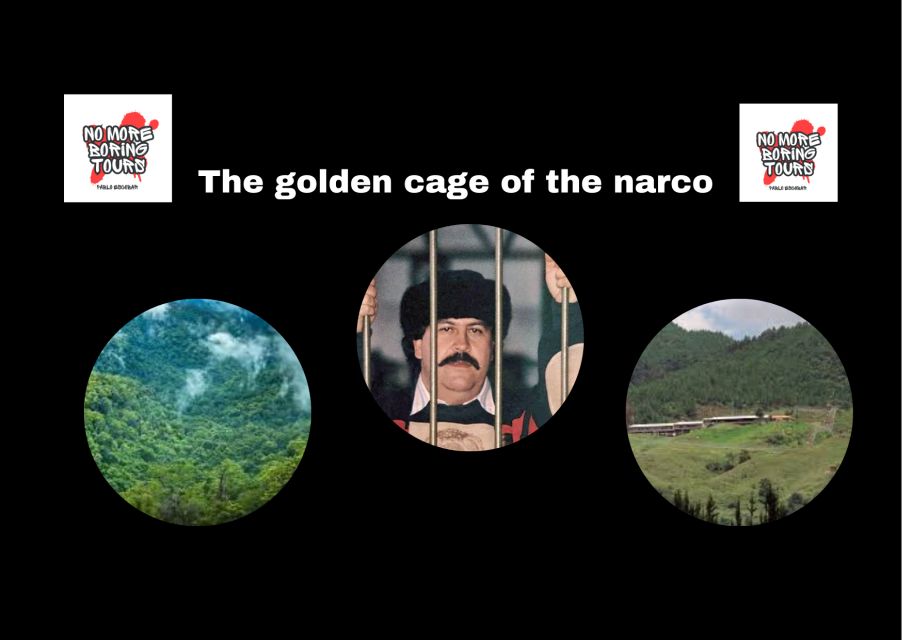
- Pablo Escobar controlled 80% of the global cocaine supply during the late 1980s, establishing a multi-billion dollar drug empire.
- His reign resulted in approximately 8,500 innocent lives lost due to gang violence, bombings, and assassinations.
- Escobar’s ruthless tactics included the use of hitmen and intimidation to eliminate rivals and maintain his drug empire.
- He gained local support by funding social programs, masking his criminal activities while fostering community dependency.
- The legacy of violence and fear from Escobar’s actions continues to impact Colombian society and erode trust in law enforcement.
Pablo Escobar’s Early Life
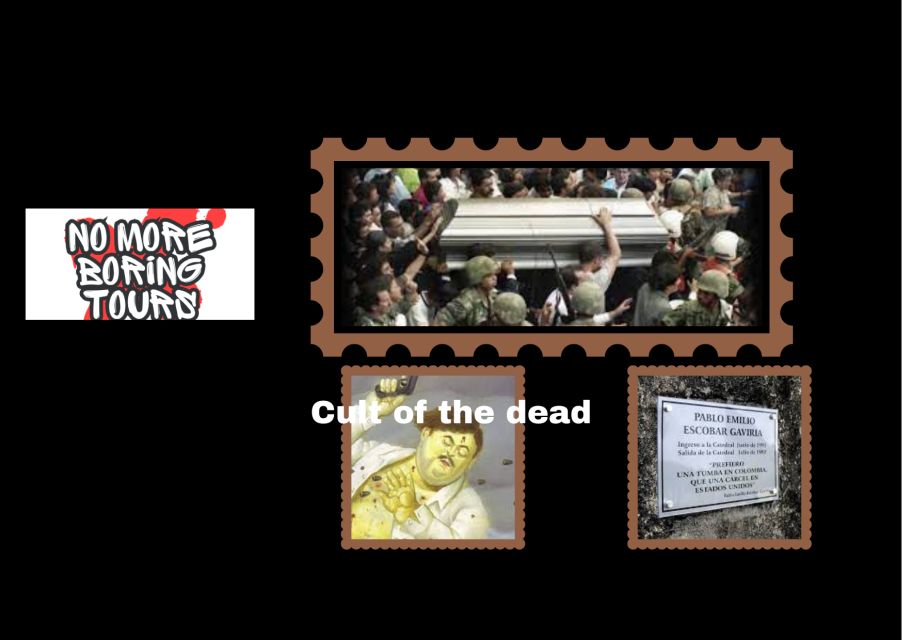
Pablo Escobar grew up in a modest neighborhood in Rionegro, Colombia, where his early experiences shaped his ambitions and laid the groundwork for his future as one of the world’s most notorious drug lords.
Raised in a working-class family, he learned the value of hard work from his father, a farmer, and his mother, a schoolteacher.
As a boy, Escobar displayed entrepreneurial skills, engaging in small-time schemes to make money.
His childhood environment exposed him to poverty and social inequality, fueling his desire for wealth and power.
These formative years ignited a relentless pursuit of success, ultimately leading him down a dark path into the world of crime, where his ambitions would have devastating consequences for Colombia and beyond.
Rise to Power in Medellín
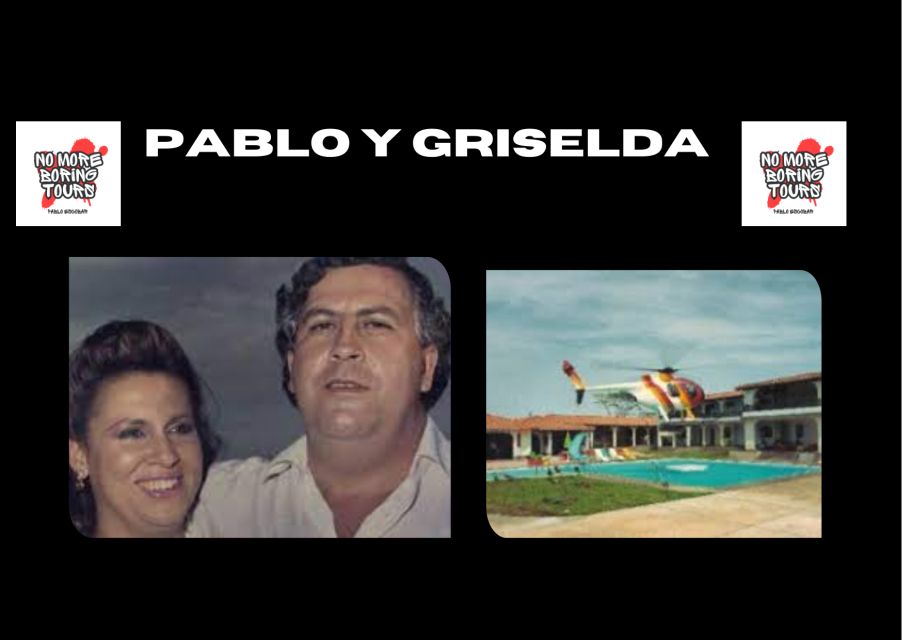
In the late 1970s, Escobar’s strategic alliances and ruthless tactics propelled him to the forefront of Medellín’s burgeoning cocaine trade, establishing his dominance in the drug world. He carefully cultivated relationships with other traffickers, leveraging their resources and networks while eliminating rivals through intimidation and violence.
His charm and wealth helped him gain the support of local communities, as he funded social programs and built infrastructure. This earned him a certain level of loyalty, masking his brutal methods.
As Escobar’s empire expanded, he became synonymous with the cocaine industry, attracting both admiration and fear. His ascent marked a turning point in Medellín, transforming it into a key player in the global drug trade, with dire consequences for countless innocent lives.
The Cocaine Empire
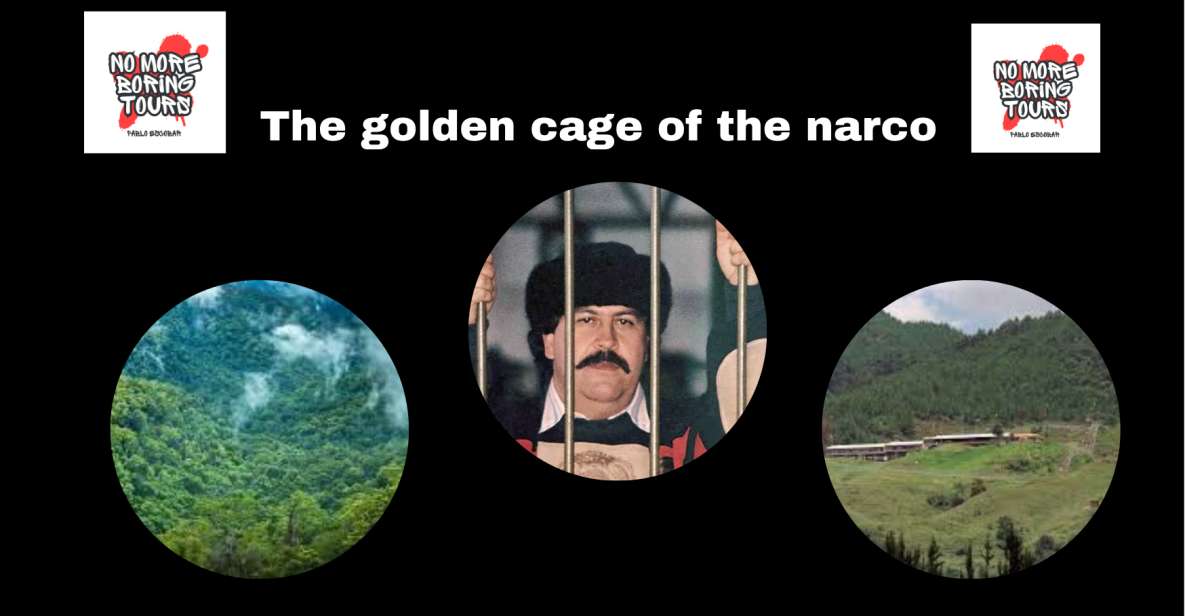
Emerging from the shadows of Medellín, Escobar’s cocaine empire rapidly evolved into a multi-billion dollar industry that reshaped global drug trafficking. His organization controlled an estimated 80% of the world’s cocaine supply during the late 1980s, establishing intricate networks for production and distribution.
Escobar’s operations relied on a combination of sophisticated technology and ruthless tactics, employing thousands of workers and corrupt officials. He used violence to eliminate rivals and instill fear, ensuring his dominance in the drug trade.
Escobar’s wealth allowed him to invest in community projects, masking his criminal activities and gaining local support. Ultimately, his cocaine empire not only transformed the economy but also brought devastating consequences to Colombia and beyond.
Impact on Innocent Lives
Escobar’s cocaine empire, while economically transformative, left a harrowing legacy of violence and suffering that deeply affected countless innocent lives in Colombia and beyond. His ruthless tactics claimed the lives of approximately 8,500 victims, including women and children caught in the crossfire of gang wars and political turmoil.
Families were torn apart as assassinations and bombings became commonplace, instilling fear in communities. The pervasive influence of Escobar’s drug trade also led to widespread addiction, further destabilizing society.
Survivors grappled with trauma, loss, and an erosion of trust in law enforcement. The scars of his reign remain, illustrating how one man’s ambition can devastate lives and communities, leaving a haunting imprint on the collective memory of a nation.
Escobar’s Criminal Network
The intricate criminal network that Pablo Escobar established spanned continents, connecting producers, traffickers, and distributors in a vast operation that fueled the global cocaine trade. This network not only showcased Escobar’s entrepreneurial spirit but also highlighted his ruthless methods.
Key elements of his operations included:
-
Coca Leaf Production: Sourced primarily from Colombia’s rural areas.
-
Drug Trafficking Routes: Established paths to the U.S. and Europe, ensuring swift distribution.
-
Corruption and Bribery: Escobar infiltrated political and law enforcement circles, securing protection and silence.
-
Violent Enforcement: Utilized hitmen and intimidation to eliminate rivals and maintain control.
Through these strategies, Escobar created a powerful criminal empire, leaving a lasting mark on the drug trade and society.
Legacy of Violence and Fear
Throughout the 1980s and early 1990s, Pablo Escobar’s reign instilled a pervasive atmosphere of violence and fear in Colombia, profoundly impacting the lives of countless individuals and communities.
His ruthless tactics, including bombings, assassinations, and intimidation, created a climate of terror that left many feeling vulnerable and powerless. Families lived in constant fear of violence, while law enforcement struggled to maintain order against Escobar’s powerful cartel.
The brutality of his operations not only resulted in the deaths of 8,500 innocent people but also fostered deep-seated mistrust within society.
Even today, Escobar’s legacy lingers, as communities grapple with the scars of his actions, reminding them of the darkness that once engulfed their lives and the ongoing quest for peace and security.
Tours and Educational Insights
As communities continue to navigate the aftermath of Escobar’s violent legacy, tours focused on his life and the history of Medellín offer valuable educational insights into this complex chapter of Colombian history. These tours not only reveal the depths of Escobar’s impact but also foster understanding of the region’s transformation.
Participants can expect to:
-
Visit significant locations like Cementerio Jardins Montesacro and La Catedral.
-
Enjoy personalized storytelling from knowledgeable guides.
-
Learn about Medellín’s evolution, including its past as the cocaine capital.
-
Engage in discussions about sensitive historical contexts.
With a small group setting, these tours provide an intimate atmosphere for exploration, ensuring participants leave with a deeper understanding of Medellín’s multifaceted narrative.
Remembering the Victims
Remembering the victims of Pablo Escobar’s reign is crucial for understanding the profound impact of his actions on countless lives in Medellín and beyond.
Escobar’s drug empire resulted in the senseless deaths of approximately 8,500 innocent people, families torn apart, and communities devastated. Each victim represents a story cut short, a life lost to violence and corruption.
Memorials and parks in Medellín serve as somber reminders of this dark history, honoring those who suffered. As society reflects on Escobar’s legacy, it’s essential to acknowledge these victims, ensuring their stories aren’t forgotten.
Frequently Asked Questions
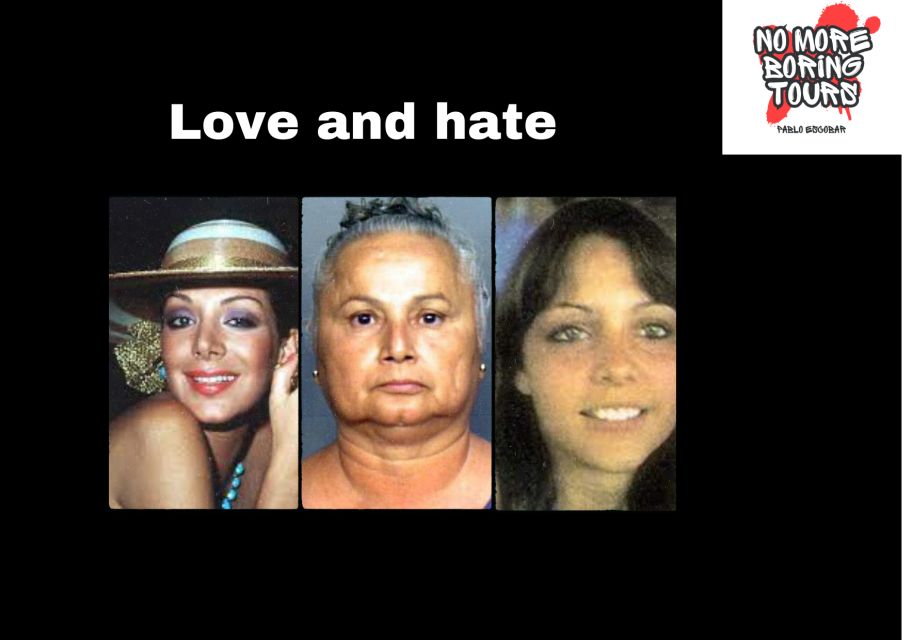
What Were Pablo Escobar’s Initial Sources of Income Before Drug Trafficking?
Before drug trafficking, he earned money through various ventures, including selling goods, running a small car theft ring, and engaging in illegal gambling. These activities laid the groundwork for his later criminal enterprises.
How Did Escobar’s Actions Affect Colombia’s International Reputation?
Escobar’s actions severely tarnished Colombia’s international reputation, painting the nation as a hub for violence and drug trafficking. This perception hindered tourism and investment, creating lasting challenges for Colombia’s image on the global stage.
What Was the Role of the Medellín Cartel in Global Cocaine Distribution?
The Medellín Cartel played a crucial role in global cocaine distribution, controlling production and trafficking routes. It established a vast network, ensuring consistent supply and dominating markets in North America and Europe throughout the 1980s.
Are There Any Surviving Family Members of Pablo Escobar Today?
Yes, Pablo Escobar’s family members still live today. His son, Juan Pablo, has changed his name to Sebastián Marroquín and engages in architecture, while his daughter, Manuela, maintains a low profile, focusing on her education.
How Is Colombia Addressing the Legacy of Violence Left by Escobar?
Colombia’s government actively promotes peace initiatives, focusing on reconciliation and development. They support victims, foster community engagement, and emphasize education to address the legacy of violence, aiming to create a more secure and unified society.
Not for you? Here's more of our most recent tour reviews happening neaby
Recap
Pablo Escobar’s reign as the ‘King of Cocaine’ reshaped Colombia’s landscape, leaving a complex legacy marked by both wealth and destruction.
While some remember his social initiatives, the staggering loss of 8,500 innocent lives and the pervasive climate of fear overshadow any goodwill.
As Colombia continues to heal from the scars of his violence, it’s crucial to honor the victims and educate future generations about the true cost of Escobar’s pursuit of power.
